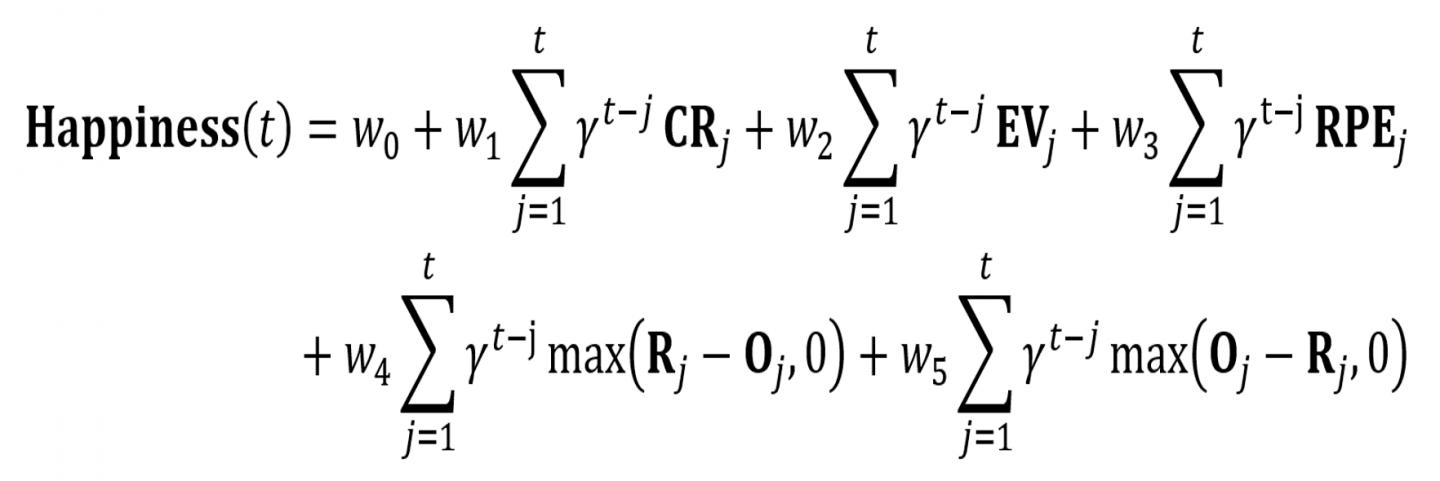A new equation, showing how our happiness depends not only on what happens to us but also how this compares to other people, has been developed by UCL researchers funded by Wellcome.
The team developed an equation to predict happiness in 2014, highlighting the importance of expectations, and the new updated equation also takes into account other people’s fortunes.
The study, published in Nature Communications, found that inequality reduced happiness on average. This was true whether people were doing better or worse than another person they had just met. The subjects played gambles to try to win money and saw whether another person won or lost the same gambles. On average, when someone won a gamble they were happier when their partner also won the same gamble compared to when their partner lost. This difference could be attributed to guilt. Similarly, when people lost a gamble they were happier when their partner also lost compared to when their partner won, a difference that could be attributed to envy.
“Our equation can predict exactly how happy people will be based not only on what happens to them but also what happens to the people around them,” explains one of the study’s co-lead authors, Dr Robb Rutledge (UCL Institute of Neurology and Max Planck UCL Centre for Computational Psychiatry and Ageing Research). “On average we are less happy if others get more or less than us, but this varies a lot from person to person. Interestingly, the equation allows us to predict how generous an individual will be in a separate scenario when they are asked how they would like to split a small amount of money with another person. Based on exactly how inequality affects their happiness, we can predict which individuals will be altruistic.”
Source: Happiness equation: New equation reveals how other people’s fortunes affect our happiness

Robin Edgar
Organisational Structures | Technology and Science | Military, IT and Lifestyle consultancy | Social, Broadcast & Cross Media | Flying aircraft

